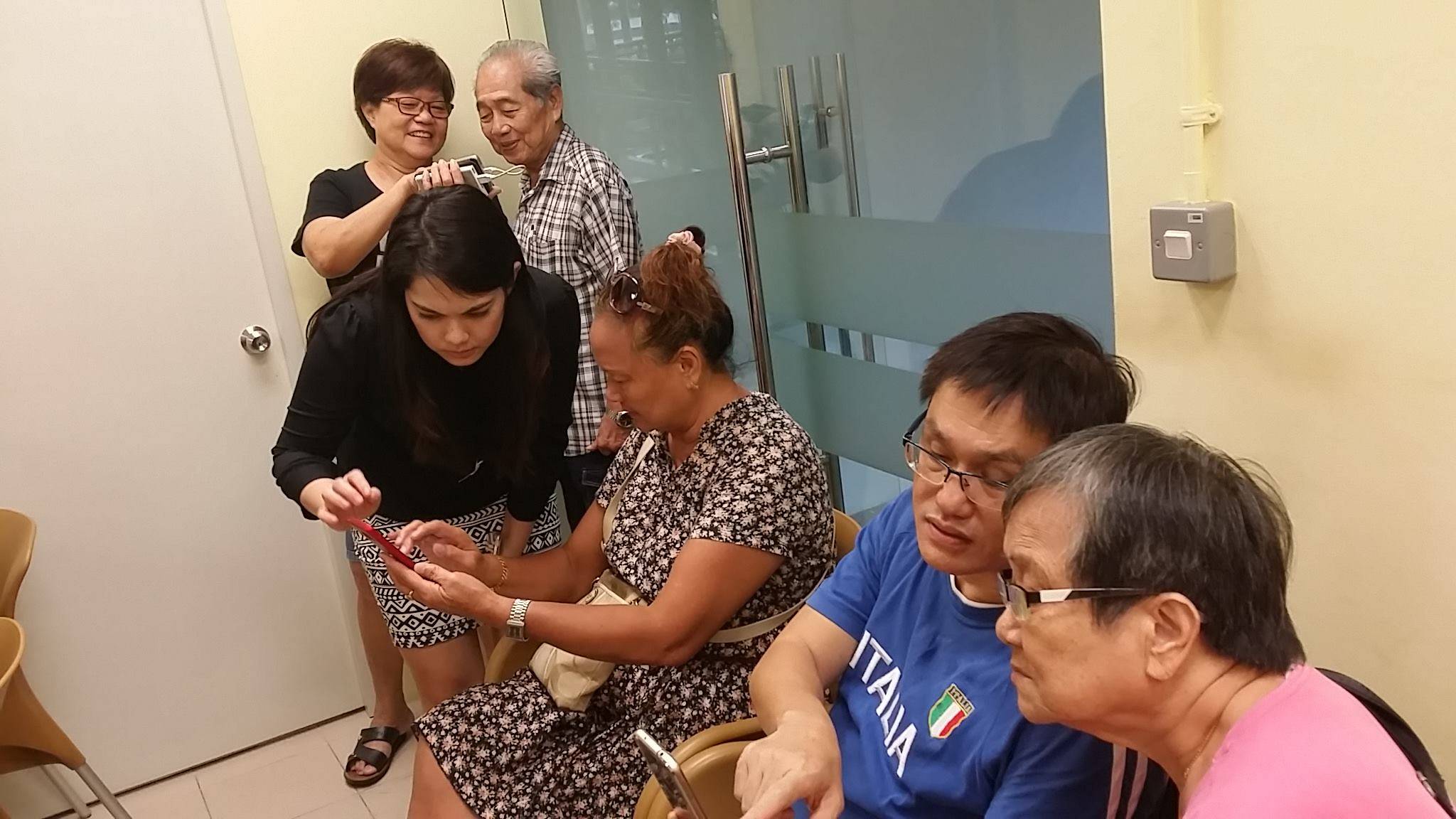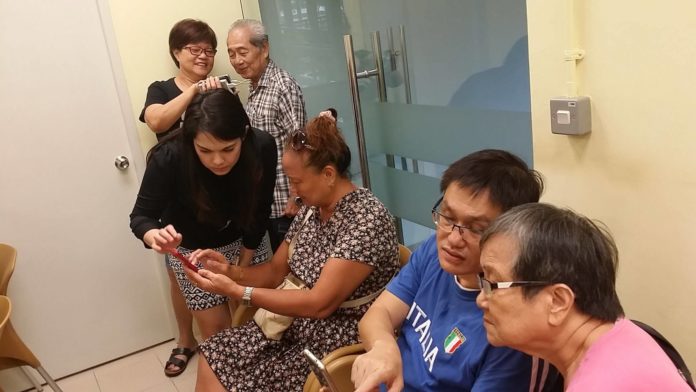SINGAPORE: Singapore has launched its first digital readiness blueprint, with inclusivity a key thrust in the initiatives the Government is embarking on to get Singaporeans ready for the digital economy.
Minister for Communications and Information S Iswaran, who unveiled the blueprint on Saturday (Jun 2), said the document comprises of strategies and recommendations made by the Digital Readiness Workgroup, which was convened last year.
The 16-strong workgroup was led by Dr Janil Puthucheary, Senior Minister of State for Communications and Information and Transport, and included officers from MCI, Ministry of Education, Ministry of Culture, Community and Youth and the Smart Nation and Digital Government Group, as well as private sector executives from Google, Facebook, Microsoft and DBS Bank. Representatives from Singapore Polytechnic, SG Enable and Touch Community Services round off the group.
“This blueprint … contains recommendations around providing widespread access to technology, driving digital literacy, encouraging everyone to play a part in strengthening digital readiness and hardcoding digital inclusion into the design of all processes and services,” Dr Janil said in the foreword of the document.
The 10 recommendations by the workgroup are:
- Make access to basic digital enablers as widespread as possible
- Customise access package for those with specific needs
- Identify a set of basic digital skills for everyday activities to spur take-up of technology, especially among the less digital-savvy
- Strengthen focus on information and media literacy to build resilience in era of online falsehoods
- Ensure that children and youth grow up to form meaningful relationships with people around them and use technology to benefit their communities
- Encourage private and people sector organisations to amplify efforts and help more Singaporeans adopt technology
- Provide one-on-one assistance to make it easy for Singaporeans to adopt technology, especially those who find it challenging
- Provide support for projects that create opportunities for community participation
- Encourage organisations to design for digital inclusion
- Reach out to more Singaporeans by ensuring that relevant digital services are made available in vernacular languages
VERNACULAR LANGUAGES FOR MORE DIGITAL SERVICES
In a multiracial, multilingual society like Singapore, the workgroup pointed out that “language can sometimes be one of the key barriers to the understanding, acceptance and adoption of anything, including technology”.
As such, it stressed that relevant services, whether it is an app, a workshop or publicity materials, should be communicated and implemented in vernacular languages to reach out to non-English-speaking Singaporeans, especially the elderly.
Machine translation could also be used where possible to make apps more usable to those who speak only vernacular languages, it added. The Info-communications Media Development Authority (IMDA) had in November last year unveiled the National Speech Corpus, an example of an artificial intelligence (AI) library, to “support and enhance the accuracy of speech recognition engines” here.
While the effort to offer vernacular languages is not new, the workgroup stressed that Singaporeans should be given the option of transacting and using digital services in their mother tongue languages, particularly for common tools like communication apps and more regularly used digital government services.
HELPING “DIGITAL NON-NATIVES”
As for the one-on-one assistance recommendation, the workgroup said they see a need to provide greater support for “digital non-natives” on the use of such devices or services. The IMDA and National Library Board (NLB) have some initiatives today to assist seniors and mature adults in navigating the technology landscape.
MCI had, for instance, mentioned in this year’s Committee of Supply debates that under IMDA’s Silver Infocomm Initiative, digital clinics and experiential learning journeys will be made available to the elderly to try their hand at technology.

IMDA staff helping senior citizens learn IT skills during its IM Bonding project. (Photo: IMDA/Facebook)
In tandem with these, the workgroup recommended a “dedicated and regular avenue through which the public can obtain one-on-one concierge-type assistance” on the use of digital devices or services. This can be offered at common social gathering points like community clubs, public libraries and senior activity centres, and staff there can help impart basic digital skills, it added.
A MCI spokesperson told Channel NewsAsia that the intention for this recommended assistance is intended to be a permanent avenue in the long term, and the operational model is being discussed by the relevant agencies. It will be piloted at selected community clubs by the fourth quarter of this year, the spokesperson added.
It also suggested that more emphasis be placed on helping citizens living in mature estates that have higher proportions of seniors.
Madam Saw Geok Choo, an 80-year-old who does not live with her family, was held up as an example in the blueprint. She received a new smartphone from her daughter, but did not have anyone to easily turn to for help in using the device and did not want to trouble others to find out more.
She later learnt about IMDA’s digital clinic from her friend and attended one in May this year, which proved useful as she learnt how to check for bus arrival timings and transfer photos from her old phone to the new.
What, then, is the end goal now that the blueprint is revealed?
The Government said its digital readiness efforts are directed at ensuring four “strategic outcomes”: That every Singaporean has the means to transact digitally, has the skills, confidence and motivation to use technology, makes use of technology to achieve a better quality of life and every digital product or service is designed for easy and intuitive use.
“The heart of the nation is our people,” Mr Iswaran said.
“And we want to ensure that all Singaporeans can thrive and lead fulfilling lives in a digital era, using technology as a critical enabler.”





